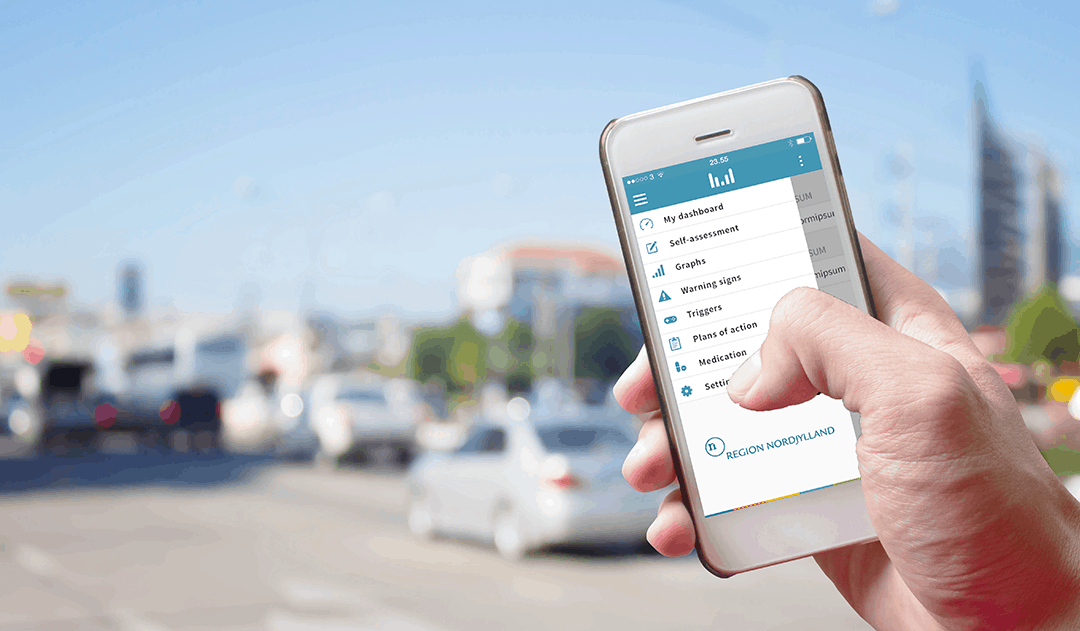
Monsenso will begin clinical trials for anxiety
Monsenso will begin clinical trials to support the treatment of anxiety disorder in collaboration with The Mental Health Services in the Region of Southern Denmark (MHS).
The Anxiety Monitoring Study
The objective of the study is to implement and validate the Monsenso mHealth solution to support the treatment of anxiety disorders.
The Monsenso mHealth platform uses a double-loop treatment model to connect care providers and individuals. Currently, it is being used to collect patients’ self-rated status and sensor-based behavioural data on a daily basis.
Recent advances in mobile technologies have created more opportunities for assessments and treatments to be available to people in situations where they are most needed. Personal health technologies can collect patients’ self-rated status and sensor-based behavioural data (e.g., physical activity, phone usage, social activity) on a daily basis.
The information gathered this way provides feedback on treatment progress to both care providers and individuals. Moreover, it also supplies ecological momentary interventions (EMI), for instance, by prompting individuals to do assignments depending on the context and patients’ current status.
Regarding anxiety disorders, mobile health solutions can be useful in assisting patients to use skills learned during treatment in real life situations, as well as to monitor and give feedback on progress or lack of progress during therapy. This feedback leads to better outcomes for patients not responding well to treatment.
Pilot study: The feasibility of the solution will be evaluated using a qualitative and quantitative study without a control group involving 30 patients for three months examining usability and usefulness of the solution for both patients and clinicians.
Participants: Anxiety Patients in Routine and Special Care Settings in Southern Denmark.
Expected results: The study will result in the development of a solution based on user needs. The platform will be a feasible, usable and useful intervention.
Implementation: If the results of the feasibility study are promising, the study results will be used to improve the mHealth solution and develop version 2. Afterwards, a randomised controlled trial (RCT) will be conducted to examine outcome related effects of the solution, such as rate of recovery. If the feasibility and outcome of the RCT studies are positive, it is expected that there will be interest in implementing the mHealth solution in routine and specialized care settings around the world.
To read the press release, click here.
